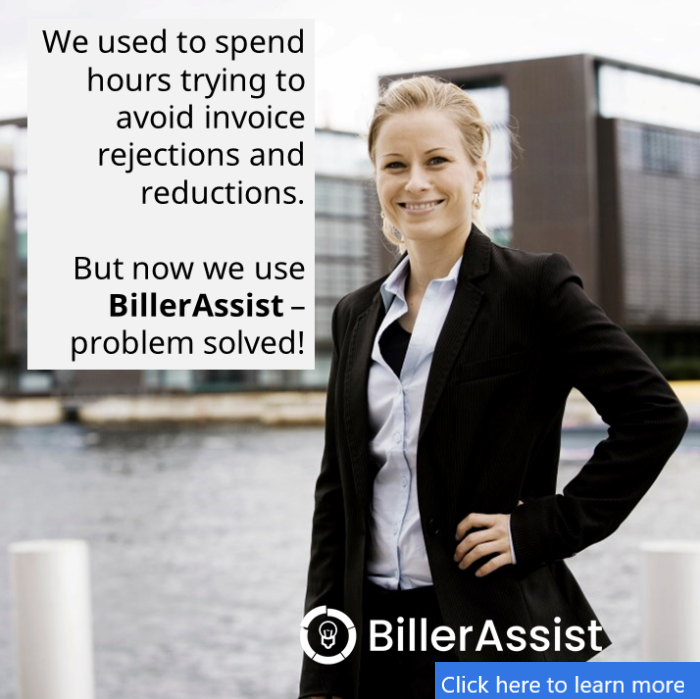Five Ways for Smaller Law Firms to Become More Efficient
Modern law firms should continually look for new ways to increase their efficiency and drive productivity.
Nevertheless, less than 30% of law firms have an employee tasked to drive law firm automation, innovation technology.
Those firms that do have dedicated technology specialists tend to be larger or even the largest of market participants.
This article is intended to assist those many law firms that do not have dedicated technology specialists, by providing an easy overview across categories of online legal software and other tools available.
Legal software tools have the potential to revolutionize the way in which law firms operate and innovate, increasing both efficiency and profits. In fact, technology adoption ranks fourth in the top challenges law firms in particular face behind pricing, cybersecurity, and operational efficiency. According to Above the Law, legal software & hardware technology saw $200 million in new investment in one recent year alone.
With large players entering the market, expect more game-changing software tools to follow. For example, Thomson Reuters recently introduced its latest and improved legal research platform, Westlaw Edge. It applies state-of-the-art artificial intelligence powered by more than 100 years of attorney-edited annotations. As law practice management software hit the market, look for more companies and startups to follow suit.
There is an abundance of products and methods for lawyers looking to make better use of their time. However, with an abundance of options, finding the right solutions that add value to your firm is essential.
Here are five areas where law firms — especially smaller ones — should look for ways to become more efficient.
Automation and Machine Learning
Many mundane processes are essential but still consume a large part of a lawyer’s time. For example, the heavy sigh that follows completing one’s monthly bills may be followed by thoughts like, “Is this what I went to law school for?” The obvious answer is no. The valuable answer is automation!
Although automation and artificial intelligence often conjure perceptions of being replaced by a robot, artificial intelligence tools can actually substantially increase law firm efficiency and productivity. Many law firms recognize that AI is their friend and not their enemy.
For example, 56% of law firms that took part in a recent New York Law School market research survey are looking for proficiency in legal technology when hiring new associates.
One prominent example of artificial intelligence is IBM’s Watson. Using IBM’s Watson, ROSS Intelligence “allows you to ask your questions in plain English, as you would a colleague, and ROSS then reads through the entire body of law and returns a cited answer and topical readings from legislation, case law, and secondary sources to get you up-to-speed.” Imagine the endless possibilities with technology like this, and how law firms can revolutionize the legal sector.
Automating tedious, time-consuming tasks allows lawyers to spend more time elsewhere like earning new business, increasing responsiveness, and enhancing the quality of work lawyers can offer their clients, all while actually decreasing overhead expenses.
Automatable processes include:
- Time and expense entry
- Client intake processes
- Budgeting
- UTMBS or “LEDES” coding
- Invoice submissions and file format conversions
- Document review
For example, the client intake process takes up plenty of time and energy. Having to arrange and set aside time for the potential client to be interviewed, conducting conflict checks, interviewing the potential client, and more—sometimes only to discover that the potential client is not a good fit—is a burden both on lawyers and their staff.
With applications like Lexicata, you can automate those processes. These applications allow potential clients to be interviewed online, with neither the lawyers nor their potential clients having to schedule times to meet or travel anywhere for the meeting. This is a win-win for both lawyers and clients.
Automation not only saves you time that can be used winning new business but also maintain a more efficient streamlined workflow.
Similar to the intake process, document review can take ages and is often tedious work. The Kira program application aims to decrease the number of documents read by lawyers. Kira’s clients report reducing the lawyer time required for contract review by 20% to 60%, said Chief Executive Noah Waiseberg.
Forward-thinking law firms and their practice groups are already using these available products to streamline the various processes that delay lawyers, increase administrative overhead, and more generally contribute to a feeling of drudgery associated with these tasks.
In addition, let’s not forget about competition from other law firms and potential impact of technology adoption by a lawyer’s competitors.
Automating mundane tasks will pay off for lawyers who continue to enhance their deliverable services and to remain at the forefront of legal innovation.
Adding Value Through Adopting Automation Apps
Many types of legal automation apps deal with saving time. McKinsey Global Institute estimates that 23% of a lawyer’s job can be automated, leaving more time to focus on billable hours or other less tedious activities.
Imagine the time and hassle that could be saved by having an app take care of your monthly billing and expense entries, and handle your matter budgeting for you. Billing automation applications like BillerAssist and others do the work for you. Time saved not having to deal with tedious work means more time available to earn money, and to enjoy life.
Other types of automation apps deal with revenue generation. Imagine automating your client interviews to more easily screen more clients, or crowdfunding your legal work to make your bills more affordable. And, to make it better, imagine if those applications integrated with your current billing or practice management system and required no installation.
These are just a few examples of how automation of mundane tasks can provide clear value.
This holds true for all law firms regardless of size.
The American Bar Association estimated that up to 40% of small law firms do not use practice management software. Size does not matter when it comes to operating at the highest efficiency and adapting to the tools and best practices available. Letting short-term costs shadow long-term efficiency may be detrimental for law firms of any size.
In addition to adapting to new available tools and systems, consider whether your law firm is paperless, or should be heading in that direction.
Everything you do on paper can be completed faster and managed more efficiently than manually writing everything on a piece of paper that has to be physically stored and carried with you.
Become Data Driven
If you cannot measure it, did it happen? Many law firms do not measure their activities and expenses accurately or do not measure altogether. According to a survey conducted by Thomson Reuters, less than 15% of attorneys believe their firms are effectively using big data to deliver legal services.
Using data to strengthen plans and recommendations is essential to learning from the past and operating more efficiently. This holds true whether it be litigation management, a new billing structure, or something else. In fact, according to Accudata, law firms saw a 66% revenue boost by implementing data quality best practices.
Law firms, therefore, see clear benefits from measuring their data and results to determine if something is working, and how well, or if it should be scrapped altogether.
Moreover, providing actionable data to law firm partners positions the law firm to succeed based on a clear understanding of actual and empirical information.
Indeed, without such actionable data, decisions made on conceptions and general beliefs alone may have a rippling effect on negative performance.
Utilize Cloud-Based Applications
What if your lawyers could access the content needed to work at any time, any place? Sounds like more billable hours, and more time to enjoy the fruits of labor.
Utilizing cloud-based legal software has immediate impacts on law firms’ efficiency and the happiness of lawyers and their staff. Maintaining a free-flowing data accessibility environment—which is what cloud-based systems allow—increases productivity throughout an organization. Having cloud-based legal software that also integrates with your law firm’s billing system or other software used by the law firm will also increase efficiency by centralizing a firm’s workload.
LogicMontior estimates that 83% of workloads will soon run on the cloud. This holds true for all users whether that be partners, associates, paralegals, or administrative professionals.
Simple processes like converting a file by hand can consume a lot of time, as well as walking it to the right location and more.
For instance, estimated annual cost per invoice for converting LEDES formats are at $972. Cloud-based applications like InvoiceConvert easily converts LEDES 1998B invoices into LEDES 2000 format in a matter of minutes, and with each file conversion, the process only becomes faster.
Time-savers like this add real value to your firm. If that’s not enough, these applications integrate with your preferred billing system to centralize your workload.
Legal practice management software platforms — like Clio, ActionStep, RocketMatter, PracticePanther, and more — transform how law firms are run through these key integrations. The results are that employees spend less time on administrative tasks and more time winning new business.
Invest In Your Own
Sometimes the highest value to add to your law firm or legal department lies right within your own walls.
A law firm’s own employees are often overlooked. Encouraging innovation or providing technology training for employees can be extremely rewarding for your law firm. You want to foster an environment in which employees can share ideas, think outside the box, collaborate, and more.
Some law firms even have their own legal tech startup and think tank right inside their office space. The benefits will have an immediate impact. This may even improve talent retention, a law firm’s most significant asset, or attract high-level players once they hear that your law firm actually cares about those who represent it.
Conclusion
These five ways will help you get the ball rolling, but it is up to you to see the value in the tools and best practices available for your law firm to succeed in the modern era.
Automating tedious, time-consuming tasks with machine learning capabilities, adapting to cloud-based products, and using what works best for your firm will benefit your practice and your clients. Employees will also appreciate the effort made in streamlining their processes to increase productivity so that they can spend their time winning new business and more.
Moving toward technology now and not later will make you indispensable. And, utilizing tools that add value to your firm will separate you from the pack in addition to shedding unnecessary labor.







